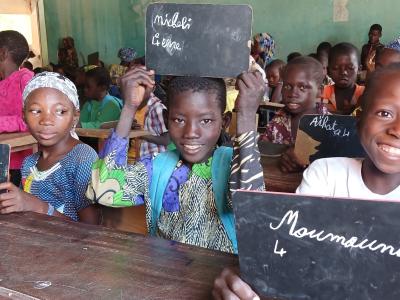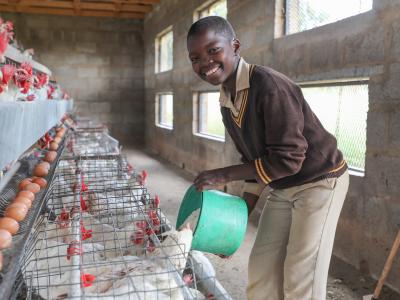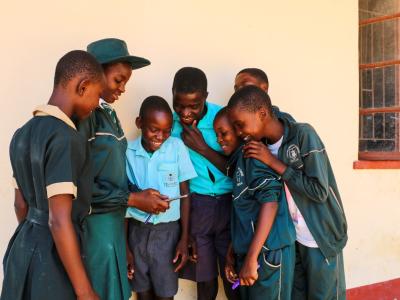article / February 20, 2026
Unlocking the Middle Tier: Learning Through Dialogue
There is much focus on the “middle tier” in Education systems in low- and middle-income countries at present. The middle tier describes groups of professionals at county, zone, district or provincial level whose role is to monitor and support schools (UNESCO, 2025). They are the people who often become master trainers or are tasked with supporting the implementation of a new curriculum or new initiative. The middle tier acts as a mediator between policy makers (top leadership) and implementers (teachers). We have argued that they are key actors in the implementation of high quality TPD@Scale, but that they often lack the knowledge, skills, and professional development opportunities to carry out this role effectively.
article / February 16, 2026
Learning Still Has a Home
Amid Syria’s education crisis, millions out of school and learning spaces damaged, Fadi* describes how broken basics made his children’s school feel unsafe and uncertain.
Through World Vision’s rehabilitation project, the school was repaired (classrooms, desks, sanitation, water network) and students received stationery, restoring a healthier learning environment.
Fadi also joined a sustainability committee to help maintain improvements through regular follow-ups and community awareness.
article / February 13, 2026
Unlock Literacy approach transforms reading learning
Unlock Literacy approach transforms learning to read Unlock Literacy (UL) is an educational program developed by World Vision to improve reading skills from primary school.
article / February 20, 2026
EU-Funded World Vision Programme Reaches 4,800 Children as War Continues to Disrupt Learning
EU-funded World Vision project supports 4,800+ Ukrainian children with education, psychosocial aid, and protection amid ongoing war disruptions.
article / February 19, 2026
World Vision’s Integrated Programs Transform Learning, Health, and Hope for 1,052 Learners in Pitseng
World Vision’s integrated programs transformed a primary school in Pitseng, providing clean water, safe toilets, new classrooms, school gardens, and poultry projects, improving learning, hygiene, and student wellbeing
article / February 13, 2026
From Limited Resources to Limitless Learning: A Digital Leap for Lupane Primary School
For the children at Lupane Primary School, the tablets are more than technology, they are windows to new possibilities, inspiring dreams, building skills, bridging the digital divide and bringing hope that every child, no matter where they live, can succeed.
press release / February 13, 2026
Ukrainian Children Face Worsening Learning Loss in Fourth Winter of War, World Vision Warns
In Ukraine’s fourth winter of full-scale war, World Vision’s rapid survey reveals more than half of families report disruptions to their children’s education.
article / February 13, 2026
When Alegria Learns, the Future Smiles: How Strengthening Literacy in Mozambique Is Transforming the Beginning of School Life
When Alegria prepares for her first school year in Mozambique, teachers strengthen early grade literacy to ensure every child learns to read and thrive.







